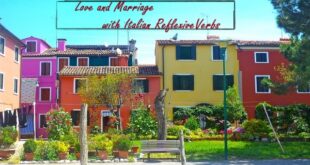It has been years since I had a daily newspaper delivered to my house. I stopped it because A) I would have a week’s worth of papers that hadn’t been read, which made the entire exercise futile; B) I don’t care what happens in the Chicago City Council, since I don’t live in Chicago; and C) I find out most news on social media as it happens, rather than wait until the next day. My dad thought he was scooping the news organizations and Facebook when he would call me to tell me about the latest event. I had a …
Read More »Sundays at Pat & Matt’s
St. Anthony’s is still my parish, and on Sunday mornings, you’ll find me at the 9 o’clock mass, just like when I was a good St. Anthony’s School student. One major difference is that the disciplinary Sisters of St. Joseph aren’t there to make sure I followed their laws. For the boys, that meant no hands in pockets and taking your hats off. For the girls, it meant making sure you had a head covering scarf or hat. Those were the good old days when, if you broke their laws, you could get a surprising smack on the head to …
Read More »MoMA marks Rambaldi milestone with retrospective
The Museum of Modern Art in New York (MoMA) and Cinecittà marked the 100th anniversary of Carlo Rambaldi’s birth in December with a special retrospective celebrating his distinguished career. Rambaldi, an Italian special-effects artist who won three Oscars, is known for his work on “King Kong” (1976), “Close Encounters of the Third Kind” (1977), “E.T. The Extra-Terrestrial” (1982), and “Dune” (1984) as well as many Italian films, including those he made with frequent collaborator Dario Argento. The event was part of a worldwide celebration supported by Italy’s Ministry of Culture. The retrospective showcased 15 films from Rambaldi’s career, including six …
Read More »An epic summer vacation
My parents had several good reasons for the scrimping and saving they did in the late ’50s in the Bronx. I learned about one of them when, on a spring evening of 1960, my father came into my room with a question: “You want to go to Italy with us?” As cautious as Dad was, he had decided to take a summer-long unpaid leave from his construction job in the days when workers like him received no vacation time. My parents, my 5-year-old sister and my 9-year-old self would soon embark on a lengthy adventure. Mom and Dad hadn’t seen …
Read More »A major shift in inheritance law
Italian inheritance law has long been known for its strong protection of close family members, the so-called forced heirs (legittimari): spouses, children and, in some cases, parents. These heirs are entitled by law to a reserved portion of the estate, regardless of the deceased’s wishes. For decades, this protection had an important side effect, particularly when assets were transferred during the donor’s lifetime. Real estate received as a gift often carried a hidden legal risk. Even many years later, a forced heir could challenge the donation and, in some circumstances, recover the property itself from a third-party buyer. As a …
Read More »Love and marriage
With the month of February comes a renewed focus on the lasting love that leads to marriage. And the happiness this love brings leads to a desire to share the story of one’s special relationship with family and friends. Of course, every relationship has its ups and downs, and telling a real-life love story with a happy-ever-after ending makes for a truly special conversation. The Italian language uses reflexive verbs to express the intricacies of a romantic relationship. This can be a bit difficult for English speakers, who usually express these ideas without reflexive verbs. But if we remember that …
Read More »How to start your genealogical journey
Not everybody wants to spend 30 years trying to take their family tree back to Adam and Eve. Or Vito and Nunzia. After spending 30 plus years doing this, I understand how they feel. I feel the same way about taking up a musical instrument. I’ll never be good enough or have time to learn enough to be any good at it, so why put all that time and energy into it. I know plenty of people who simply don’t care about family that they never met, or about their ancestral history. Despite how close-knit Italian families typically are, I …
Read More »Let the groom eat cake!
During my Bronx childhood in the ’50s and early ’60s, we ate outside our home only at relatives’ houses, on picnics, at outdoor religious festivals or at wedding receptions at nearby catering halls. The ritual of those marriage celebrations was as carefully choreographed as Sunday Mass or the initiation ordeal of medieval knights. After the bridal party was liberated from the extensive (and expensive) photo shoot behind the scenes, the emcee announced them and then belted out, “And now, for the first time anywhere, it is my honor to present to you … Mr. and Mrs. X!” Thunderous clapping and …
Read More »How to use ‘per’ in Italian
The Italian preposition per means for in English, and in most cases the use of these prepositions is straightforward in both languages. The difficulty lies in the nuances of expressing time in Italian, which can lead to per being replaced by another preposition in some situations. In Italian, a simple preposition can change the meaning of an entire sentence! Use the Italian prepositions “Per” vs. “Da” to say “For” Per means for and is used with the passato prossimo form of the past tense to describe a past action that has been completed. The description of time may be general, such …
Read More »Greeting the new year
Here we are with a new year and a new opportunity to create an exciting life or a sedate life. The choice is ours! Looking back on our lives in the larger Roseland community, we can find plenty of examples of both lifestyles. When I was a child back in the 1950s, my mom would have us kids tag along whenever she went shopping or visiting her friends. From that perspective, I got to know a lot of sedate people! Of course, you must keep in mind that I was my mother’s last child and was born when she was …
Read More » Fra Noi Embrace Your Inner Italian
Fra Noi Embrace Your Inner Italian










